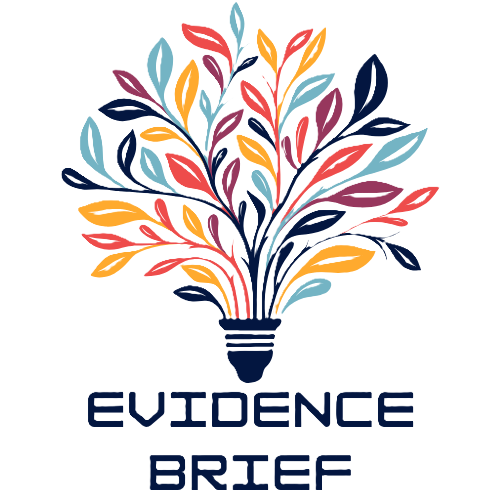In a world where every child deserves a chance to shine, special education teachers are the superheroes in the classroom. With their special education teaching credentials, they possess the power to unlock potential and foster growth in students who need it most. But let’s be honest—getting that credential isn’t just a walk in the park; it’s more like a marathon with a few surprise obstacles thrown in for good measure.
Imagine navigating a labyrinth of requirements, coursework, and exams, all while juggling lesson plans and the occasional glitter explosion. Yet, the rewards are immeasurable. Those who earn this credential don’t just teach; they inspire, empower, and change lives. So, if you’ve ever thought about making a difference in the world of education, buckle up. The journey to becoming a special education teacher is challenging, but the impact is worth every minute.
Special Education Teaching Credential
A special education teaching credential authorizes educators to teach students with disabilities. This credential ensures teachers possess the knowledge and skills necessary to support diverse learning needs. Candidates typically engage in rigorous training programs covering topics like behavioral strategies, individualized education plans, and special education law.
Obtaining this credential often involves completing a bachelor’s degree in education or a related field. Many states require candidates to undergo specified coursework in special education principles. Passing state exams or assessments is crucial, often including tests on teaching skills and knowledge specific to special education.
In addition, educators may need to complete supervised teaching experiences. These real-world settings provide invaluable, hands-on opportunities to apply learned strategies and techniques. Ongoing professional development remains vital, helping educators stay current with best practices in special education.
A special education teaching credential varies by state but fundamentally serves the same purpose. Each state maintains specific requirements that align with federal laws governing special education. Connecting with state education boards helps prospective teachers understand their local requirements.
Enhanced job opportunities exist for those holding a special education teaching credential. Schools actively seek qualified teachers who can effectively meet the needs of their students. Furthermore, this credential often leads to fulfilling career paths, allowing educators to make a tangible impact in their students’ lives and academic performance.
Importance of a Special Education Teaching Credential

A special education teaching credential holds significant value in shaping both students and educators. This credential ensures the implementation of tailored strategies that address individual learning needs.
Benefits for Students
Students with special needs benefit greatly from teachers holding this credential. Qualified educators create personalized learning plans that foster academic growth. Specialized training equips teachers to utilize various teaching methods, enhancing engagement and comprehension. They adapt lessons to suit diverse abilities, making learning accessible for all. Improved academic performance often results from targeted interventions designed by credentialed teachers. Furthermore, students gain confidence and independence as teachers help unlock their potential.
Benefits for Educators
Educators gain numerous advantages through obtaining a special education teaching credential. This credential enhances professional credibility, showcasing expertise in special education. Greater job security accompanies the demand for qualified teachers who meet specific needs. Ongoing professional development opportunities arise, allowing educators to stay current with best practices. Networking with other professionals leads to valuable collaboration and knowledge sharing. Credentialed teachers often experience increased job satisfaction, knowing they make a significant impact on students’ lives. Ultimately, the credential empowers educators to become advocates for inclusivity and understanding in education.
Requirements for Obtaining a Special Education Teaching Credential
Obtaining a special education teaching credential involves specific requirements that ensure educators are adequately prepared. Various educational prerequisites are necessary to lay the groundwork for a successful teaching career.
Educational Prerequisites
A bachelor’s degree in education or a related field is often essential. Coursework must include topics in special education, child psychology, and instructional strategies tailored for students with diverse needs. Programs accredited by the Council for the Accreditation of Educator Preparation (CAEP) are particularly valuable. Completing a teacher preparation program provides essential classroom experience as well. Many states also require educators to fulfill student teaching requirements in special education settings, offering hands-on training in real-world environments.
Examination and Assessment
Passing required examinations is crucial for credentialing. Most states mandate candidates to complete a basic skills test assessing reading, writing, and mathematics. Additionally, a subject-specific assessment focuses on special education concepts and practices. Performance on these exams demonstrates a candidate’s preparedness for teaching. Candidates may also encounter a portfolio review or other assessments introduced by state regulations. Completion of these evaluation processes ensures that aspiring educators possess necessary abilities to effectively support students with special needs.
Maintaining Your Special Education Teaching Credential
Maintaining a special education teaching credential requires ongoing commitment to professional development and compliance with renewal regulations.
Continuing Education Requirements
Continuing education plays a vital role in professional growth for special education teachers. Professional development units (PDUs) typically become necessary in this field. Teachers often complete workshops, seminars, or courses focusing on new instructional strategies, disabilities, or advocacy methods. Most states require educators to earn 10 to 20 PDUs during each renewal cycle. Diverse offerings may also include online courses or local conferences to accommodate busy schedules. Engaging in these educational opportunities ensures teachers remain current in their practice while enhancing their effectiveness in supporting students.
Renewal Process
The renewal process for a special education teaching credential involves specific steps determined by state regulations. Educators must submit an application while proving completion of required continuing education units. Some states mandate additional documentation, including proof of teaching experience or letters of recommendation. Renewal timelines vary, but most credentials require renewal every five years. Failure to adhere to renewal requirements can lead to lapses in certification status. Staying organized and aware of timelines ensures that special education educators maintain their credentials without interruption, allowing them to continue providing critical support to students with special needs.
Conclusion
The journey to obtaining a special education teaching credential is challenging yet immensely rewarding. Educators equipped with this credential not only enhance their professional standing but also make a lasting impact on the lives of their students. By embracing the complexities of special education, they foster an inclusive learning environment that nurtures growth and confidence.
As the demand for qualified special education teachers continues to rise, pursuing this credential opens up numerous opportunities for career advancement and personal fulfillment. The commitment to ongoing professional development ensures that educators remain effective advocates for their students. Ultimately, the path to becoming a special education teacher is one that leads to profound change and inspiration in the classroom.

